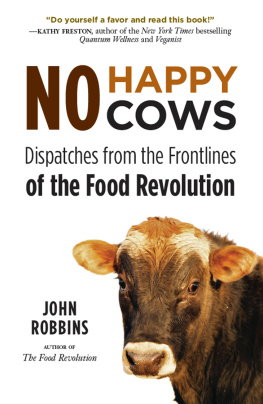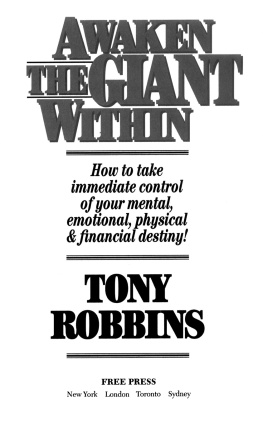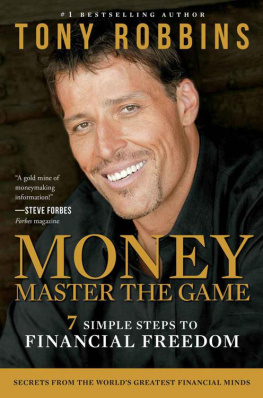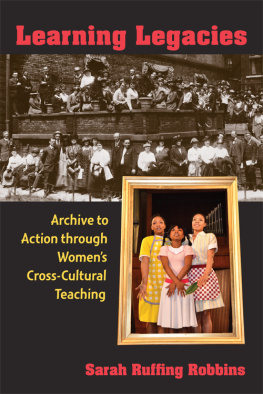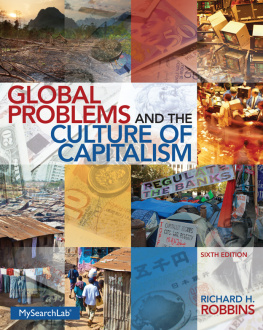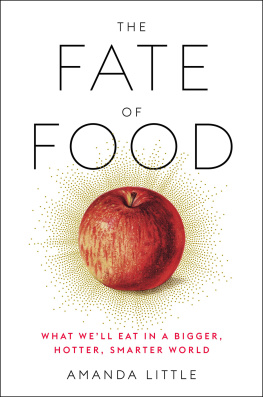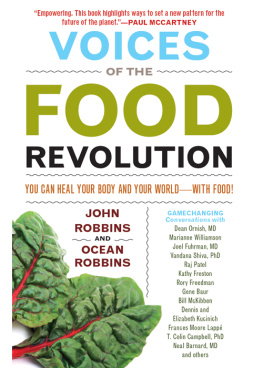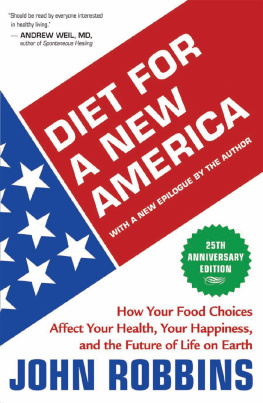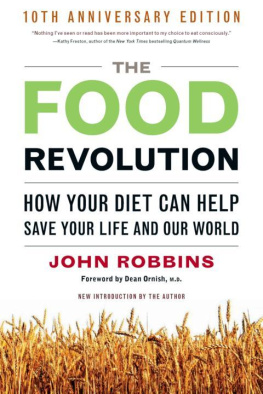About the Author

Groomed to follow in the footsteps of his father, founder of the Baskin-Robbins empire, John Robbins chose a different path for himself, becoming a social activist and fierce advocate for plant-strong diets and compassionate living. John Robbins is the author of The Food Revolution, Diet for a New America, Reclaiming Our Health, and The New Good Life. His life and work have been featured on the PBS special Diet for a New America, and he has won numerous awards for his pioneering work, including the Rachel Carson Award, the Albert Schweitzer Humanitarian Award, the Peace Abbey's Courage of Conscience Award, and Green America's Lifetime Achievement Award.
He lives with his family in the Santa Cruz Mountains.
Visit him at www.johnrobbins.info.
The Metamorphosis
of a Pig Farmer
This story, which I first told in The Food Revolution, has generated such enthusiastic response that I decided to include an updated version of it here.
ONE DAY IN IOWA, I met a particular gentlemanand I use that term, gentleman, frankly, only because I am trying to be polite, for that is certainly not how I saw him at the time. He owned and ran what he called a pork production facility. I, on the other hand, would have called it a pig Auschwitz.
The conditions were brutal. The pigs were confined in cages that were barely larger than their own bodies, with the cages stacked on top of each other in tiers, three high. The sides and bottoms of the cages were steel slats, so that excrement from the animals in the upper and middle tiers dropped through the slats onto the animals below.
The aforementioned owner of this nightmare weighed, I am sure, at least 240 pounds, but what was even more impressive about his appearance was that he seemed to be made out of concrete. His movements had all the fluidity and grace of a brick wall.
What made him even less appealing was that his language seemed to consist mainly of grunts, many of which sounded alike to me, and none of which were particularly pleasant to hear. Seeing how rigid he was and sensing the overall quality of his presence, Irather brilliantly, I thoughtconcluded that his difficulties had not arisen merely because he hadn't had time, that particular morning, to finish his entire daily yoga routine.
But I wasn't about to divulge my opinions of him or his operation, for I was undercover, visiting slaughterhouses and feedlots to learn what I could about modern meat production. There were no bumper stickers on my car, and my clothes and hairstyle were carefully chosen to give no indication that I might have philosophical leanings other than those that were common in the area. I told the farmer matter-of-factly that I was a researcher writing about animal agriculture, and asked if he'd mind speaking with me for a few minutes so that I could have the benefit of his knowledge. In response, he grunted a few words that I could not decipher, but that I gathered meant I could ask him questions and he would show me around.
I was, at this point, not very happy about the situation, and this feeling did not improve when we entered one of the warehouses that housed his pigs. In fact, my distress increased, for I was immediately struck by what I can only call an overpowering olfactory experience. The place reeked in a way you would not believe of ammonia, hydrogen sulfide, and other noxious gases that were the products of the animals wastes. These, unfortunately, seemed to have been piling up inside the building for far too long.
As nauseating as the stench was for me, I wondered what it must be like for the animals. The cells that detect scent are known as ethmoidal cells. Pigs, like dogs, have nearly 200 times the concentration of these cells in their noses as humans do. In a natural setting, they are able, while rooting around in the dirt, to detect the scent of an edible root through the earth itself.
Given any kind of a chance, pigs will never soil their own nests, for they are actually quite clean animals, despite the reputation we have unfairly given them. But here they had no contact with the earth, and their noses were beset by the unceasing odor of their own urine and feces multiplied 1,000 times by the accumulated wastes of the other pigs unfortunate enough to be caged in that warehouse. I was in the building for only a few minutes, and the longer I remained there, the more desperately I wanted to leave. But the pigs were prisoners there, barely able to take a single step, forced to endure this stench, and almost completely immobile, twenty-four hours a day, seven days a week, and with no time off, I can assure you, for holidays.
The man who ran the place wasI'll give him thiskind enough to answer my questions, which were mainly about the drugs he used to handle the problems that are fairly common in factory pigs today. But my sentiments about him and his farm were not becoming any warmer. It didn't help when, in response to a particularly loud squealing from one of the pigs, he delivered a sudden and threatening kick to the bars of its cage, causing a loud clang to reverberate through the warehouse and leading to screaming from many of the pigs.
Because I found it increasingly difficult to hide my distress, it crossed my mind that I should tell the man what I thought of the conditions in which he kept his pigs, but then I thought better of it. This was a man, it was obvious, with whom there was no point in arguing.
After perhaps fifteen minutes, I'd had enough and was preparing to leave. Moreover, I felt sure he was looking forward to getting rid of me. But then something happened, something that changed my life foreverand, as it turns out, his too. It began when his wife came out from the farmhouse and cordially invited me to stay for dinner.
The pig farmer grimaced when his wife spoke, but he dutifully turned to me and announced: The wife would like you to stay for dinner. He always called her the wife, by the way, which led me to deduce that he was not, apparently, on the leading edge of feminist thought in the country today.
I don't know whether you have ever done something without having a clue why, and to this day I couldn't tell you what prompted me to do it, but I said Yes, I'd be delighted. And stay for dinner I did, although I didn't eat the pork they served. The excuse I gave was that my doctor was worried about my cholesterol. I didn't say that I was a vegetarian, or that my cholesterol was 125.
I tried to be a polite and appropriate dinner guest. I didn't want to say anything that might lead to any kind of disagreement. The couple (and their two sons, who were also at the table) were, I could see, being nice to me, giving me dinner and all, and it was gradually becoming clear to me that, along with all the rest of it, they could be, in their way, somewhat decent people. I asked myself whether, if they were traveling in my town and I had chanced to meet them, I would have invited them to dinner. Not likely, I knewnot likely at all. Yet here they were, being as hospitable to me as they could. Yes, I had to admit it. Much as I detested how the pigs were treated, this pig farmer wasn't actually the reincarnation of Adolph Hitler. At least, not at the dinner table.
Of course, I still knew that, if we were to scratch the surface, we'd no doubt find ourselves in great conflict and, because that was not a direction in which I wanted to go, as the meal went along I sought to keep things on an even and consistent keel. Perhaps they sensed it too, for among us, we managed to see that the conversation remained completely and resolutely shallow.
Next page
